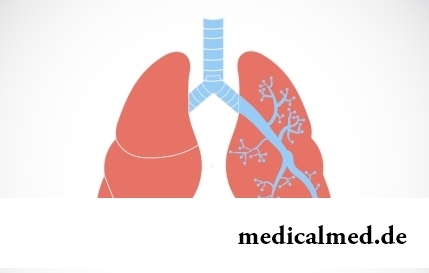





Hepatologist
The specialist who is engaged in diseases of a liver and bilious ways is a hepatologist.

Consultation of the hepatologist assumes collecting the anamnesis, diagnosing of a disease of a liver, purpose of treatment, selection of preventive measures for the prevention of further development of a disease.
Let's specify that the hepatologist is engaged in prevention and treatment of such diseases:
- cirrhosis;
- hepatitises acute and chronic: bacterial origin, enteroviral, herpetic, cytomegalic, nonspecific reactive, autoimmune, hepatitises A, B, C, D;
- toxoplasmosis;
- mononucleosis of an infectious origin;
- disease of legionaries;
- hay fever;
- steatogepatit not alcoholic origin;
- yellow fever;
- astenovegetativny syndrome.
Also the hepatologist is engaged in the liver diseases caused by an alcohol abuse.
In what cases it is necessary to go for reception to the hepatologist
Let's list symptoms of widespread diseases of a liver which emergence demands a visit to the hepatologist. It is always important to remember that the timely request for consultation can save to the person health and life, the liver is a body which at the correct treatment is recovered and continues to function. Therefore it is important also most to address the hepatologist in time and to manage to direct to him to reception of the loved one.
With, for example, can be symptoms of a viral hepatitis: deterioration in appetite, an abdominal pain, a skin itch, rashes or other abnormal manifestations on skin, weakness, loss of weight.
Cirrhosis is shown by increase in a stomach, abdominal pains, change of behavior – drowsiness is often felt, there is a fatigue, attentiveness decreases. Besides, hepatologists say that they can be observed bleeding of gums, deterioration in a libido, increase in a breast at men.
Such signs can be the general for cirrhosis and other diseases of a liver: urine darkening, lightening calla, yellowing of skin and eyeglobes.
The address to the hepatologist concerning at least one of the listed symptoms can help to reveal a disease in time.
As the hepatologist carries out diagnosis
Consultation of the hepatologist provides survey of the patient, acquaintance with symptomatology and purpose of such researches:
- General blood test;
- Research of exchange of iron, copper;
- Koagulogramma;
- Blood analysis by the PTsR method: a qualitative and quantitative research on HCVRNA and HBVDNA (hepatitises B and C), a qualitative research on HDVRNA (hepatitis D);
- Biochemical analysis of blood for determination of level of the general and direct bilirubin, sodium, potassium, protein, albumine, glucose, cholinesterase, ShchF, ALT, GGT, nuclear Heating Plant enzymes;
- Research of markers of hepatitis B and C on the IFA method;
- Studying of the AFP level – a marker of tumoral pathologies of a liver;
- Studying of autoantibodies.
Also comments on hepatologists confirm that except a blood analysis such types of inspections can be appointed:
- Kolonoskopiya – survey of a large intestine by means of the special device;
- Computer, magnetic and resonant tomography (KT and MPT) of bodies which are in an abdominal cavity;
- Ezofagoskopiya (in abbreviated form – EGDS) – survey of a gullet. During the research select biological material for check it on presence of a bacterium of H. Pylori (helikobakter).
Very often the hepatologist uses data of ultrasonography of abdominal organs.
How to choose the hepatologist
Contrary to the stereotypes which developed already, it is unimportant whether the hepatologist in the state or private policlinic works. The difference can be only in payment of reception of the hepatologist and inspections which he will appoint.
The most important, choosing the specialist, do not forget to look for comments on hepatologists. In a case with a disease of such body as a liver, the good hepatologist-diagnostician able to carry out differential diagnosis and to select the sparing treatment is necessary.
Pay attention at the choice of the hepatologist to his personal statistics – for percent of successfully recovered patients.
The 74-year-old resident of Australia James Harrison became blood donor about 1000 times. It has a rare blood group which antibodies help to survive the newborn with a severe form of anemia. Thus, the Australian saved about two million children.

The phenomenon of improvement of a condition of the patients at administration of drugs who are not containing active agents, so-called effect of placebo is known...
Section: Articles about health
All know that self-treatment is dangerous. However absolutely it is almost impossible to do without it. Rate of modern life does not allow to handle each small trouble to the doctor and information on ways of independent rendering medical the help...
Section: Articles about health
History of use of an anesthesia during operations contains more than 160 years. Annually in the world hundreds of thousands of surgical interventions during which to patients the substances immersing them in a dream and saving from pain are entered are carried out. Using an anesthesia many myths and delusions are still connected. It is worth getting acquainted with the most widespread of them....
Section: Articles about health
They say that to ensure health and longevity of people it is obliged. Really, at competent approach to these questions, we will pass...
Section: Articles about health
High temperature - a frequent symptom of such widespread diseases as a SARS, quinsy, pneumonia, etc. To reduce heat, having facilitated a condition of the patient, doctors recommend to accept antipyretics, however their use is not always possible. Too h...
Section: Articles about health
Eyes – unique body on the structure thanks to which the person obtains about 80% of information on the world around: about a form, color, size, the movement, and also many other parameters of objects or phenomena. But whether much we know about the most valuable sense body which, according to the scientist Sechenov, provides us about one thousand various feelings a minute? Let's consider 10 most surprising facts about eyes and sight....
Section: Articles about health
Diapers for adults – individual one-time means of hygiene which in some situations is irreplaceable, and from such situats...
Section: Articles about health
All like to sing. Small children with pleasure are engaged in a vocal, not especially thinking of hit in a melody. Adults most often hesitate, being afraid to show lack of talents in this area, and it is vain: singing is very useful for health....
Section: Articles about health
You heard that laughter prolongs life? Researchers did not manage to establish longevity direct link with sincere fun yet, but several facts confirming beneficial influence of risibility on the state of health are clinically proved....
Section: Articles about health
Radiological methods of a research are applied in medicine more than hundred years, and thanks to them millions of lives were saved. In m...
Section: Articles about health
New year, wedding, birthday, office party – an occasion to drink at the Russian person will always be. How to reduce a negative impact of alcohol by an organism and to avoid a condition of strong intoxication? The most correct council – to refuse the use spirits напитк...
Section: Articles about health
Cold, puffiness of a nose, itch, the watering eyes - characteristic symptoms of the allergic rhinitis resulting from hit of allergens (pollen, house dust, hair of animals, etc.) on a mucous membrane of a nose. Unpleasant feelings often give trouble, serving as the reason of a headache, an acrimony, sleep disorders, and in certain cases and the states close to a depression. How to get rid of undesirable satellites of a disease if near at hand there are no antiallergic...
Section: Articles about health
We present to yours the TOP of the medicamentous means exerting the stimulating impact on a potentiality, i.e. on ability of a muzhcha...
Section: Articles about health
Statistically, pathologies of a thyroid gland in the world more than 500 million people have. Failures in work of this body lead to heavy disbolism, development of heart diseases, vessels, a reproductive and nervous system. In hard cases excessive...
Section: Articles about health
It would seem, about it there can be no disagreements: water is necessary for a human body for normal life activity, and about how and when it should be drunk, all know. It turned out that the situation is not absolutely so: for many years there are very persistent delusions connected with this question. Let's consider the most widespread of them....
Section: Articles about health
The state of health of the person depends on many factors. One of the most important is the constant but which is not exhausting, motive...
Section: Articles about health
The business lady, the become mother, it is necessary to solve an array of problems. But of them is main: how to combine the beloved child and work? What traps trap the working mother and how she needs to behave?...
Section: Slideshow
Smack in a mouth can arise in the natural way – as a result of lack of morning hygiene or reception of the corresponding food. However in certain cases its existence is a sign of certain pathologies, and allows to reveal an illness at an early stage. Depending on character of aftertaste – acid, salty, bitter, sweet – distinguish also diseases which accompany it....
Section: Articles about health
The immunity role in growth of the child is invaluable. The proteins-immunoglobulins produced by immune system preserve the child against diseases...
Section: Articles about health
Each person has easy indispositions which he transfers "standing", trying not to ask for medical care. Arguments at the same time are adduced same: "it is a trifle, itself will pass", "I have too many important issues", "there are no wish to spend time on...
Section: Articles about health
Epilepsy is one of widespread neurologic diseases. Parents, whose children suffer from this illness, should face rumors and delusions, many of which remained since the Middle Ages....
Section: Articles about health
The advantage of swimming for the person is so high that this sport is not only the most popular, but also is widely applied in copper...
Section: Slideshow
What will only not be thought up by persons interested to have a beautiful figure. Here the last innovation – for weight loss needs to be eaten greasy food. Let's understand whether there is at a fatty diet common sense....
Section: Slideshow
Feeding by a breast - the integral part of ideal motherhood allowing to come into contact with the kid and to create to it healthy immunity since early years. Nevertheless, this important process in life of mother and child can be saddened laktostazy − by a milk delay in a mammary gland. What main reasons for a laktostaz? How not to allow problems with breastfeeding? Let's consider 10 premises resulting in stagnation of milk at the nursing mother....
Section: Articles about health
Osteoporosis this general disease which main sign is decrease in density of a bone tissue. On width распростран...
Section: Articles about health
The mankind knows that some toxins at intake in the minimum quantities have therapeutic effect from an extreme antiquity. Many substances recognized poisonous are applied in the medical purposes also today, being the main deystvuyushch...
Section: Articles about health
Life does not indulge the modern woman special emotional comfort and carelessness. The fatigue, troubles at work, misunderstanding in a family and various illnesses immediately affect a condition of hair and skin. And there is a wish to look safe and attractive so! Substantially competently picked up diet can improve situation....
Section: Articles about health
